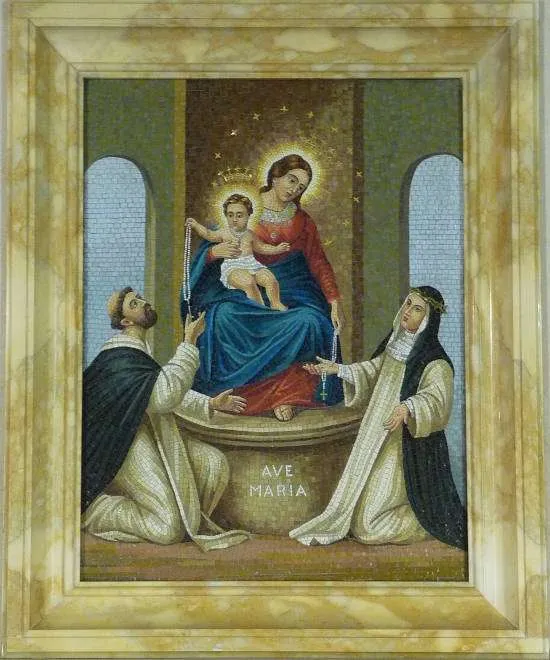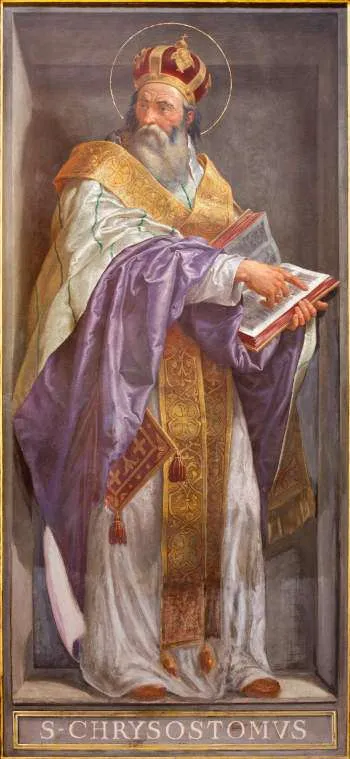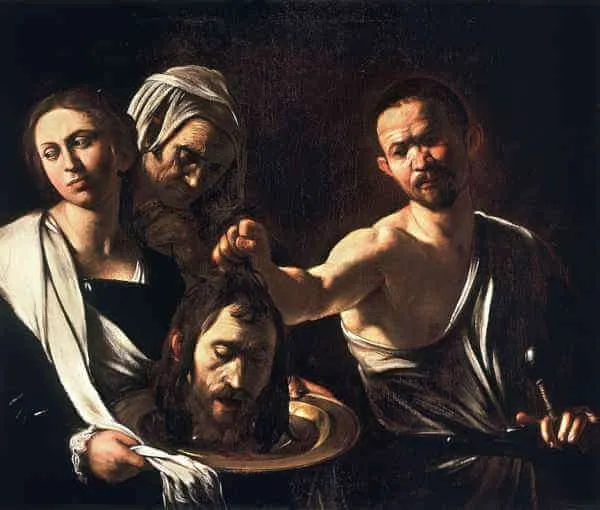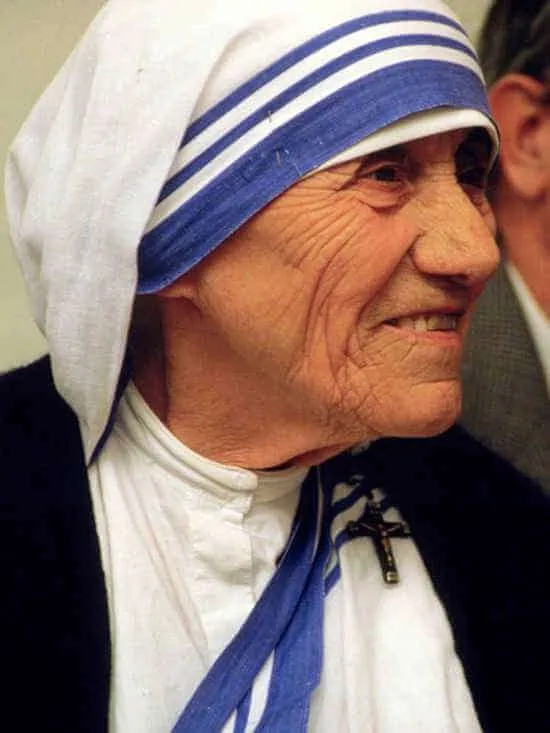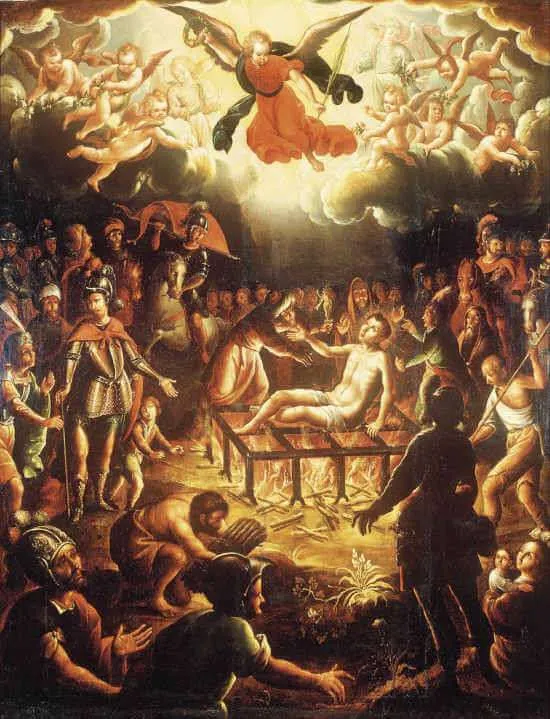In the twelfth and thirteenth centuries, the Albigensian heresy was flourishing in southern France. The Albigensians were Christian dualists who believed the Old Testament God was the source of the material world, which was evil, and the New Testament God was the source of the spiritual realm that was good. They rejected the sacraments and promoted extreme asceticism as a way of rejecting the material world.
In 1203, Saint Dominic was traveling through southern France on a diplomatic mission when he encountered this grave heresy. In the two decades to follow, he devoted himself wholeheartedly to rooting out this heresy through preaching and debates. Legend has it that at some point, frustrated with the difficulties he was facing in that mission, he retreated for a few days of prayer and fasting to beseech Our Lady for guidance. Our Lady appeared to him, giving him the Rosary, revealing the mysteries to be meditated upon during the fifteen decades, and exhorting him to preach the mysteries and to pray the decades as a spiritual weapon. The word “Rosary” comes from the Latin rosarium, which means “rose garden.” Each Hail Mary is a spiritual rose; together, they make up the garden of roses. Saint Dominic did as Our Lady instructed him and became quite successful in converting the heretics.
Today’s feast of Our Lady of the Rosary has its roots in a feast named Our Lady of Victory. In the late sixteenth century, the Muslims of the Ottoman Empire were expanding into southeastern Europe and the Mediterranean region. In 1571, Pope Pius V, who was a Dominican, formed an alliance between the Papal States, Spain, Venice, and several other smaller Christian states, called the Holy League, in order to stop Ottoman aggression. On October 7 of that year, the Holy League confronted the Ottoman navy in the Mediterranean, and the pope called upon all of Europe to pray the Rosary for victory. Victory was achieved. In gratitude, Pope Pius V instituted the Feast of Our Lady of Victory to be celebrated on the first Sunday of October every year. Two years later, Pope Gregory XIII changed the name to the Feast of the Holy Rosary. In 1671, the feast was extended to all of Spain, and in 1716, after another important victory against the Muslims, the feast was extended to the entire Church. In 1913, Pius X changed the date from the first Sunday in October to October 7 to preserve the Sunday celebration. Today, this feast is celebrated under the title of Our Lady of the Rosary as a mandatory memorial on the Roman Calendar.
Though war is always gravely unfortunate and should be avoided if at all possible, defense of one’s family and nation is a moral duty when an unjust aggressor attacks. In this case, prayer is the greatest weapon of war, and after the Mass, the Rosary is the greatest prayer to be prayed.
In addition to physical war to protect one’s nation, the Rosary is among the greatest spiritual weapons to fight against every form of evil. Often, even during times of national peace, spiritual chaos ensues. Today, due to instant worldwide communication technologies, we are well aware of the many spiritual evils that plague societies and peoples everywhere: wars, corruption, immoral living, flamboyant sins of the flesh, murders, thefts, crimes of hate, moral decay, poverty, and so much more. Rather than just criticizing and condemning such evils, praying the Rosary for those intentions is the best way to combat them.
As we celebrate this feast in honor of the holy Rosary and Our Lady, seek to renew your trust in her intercession, using this powerful spiritual weapon. Every crime, abuse, cruelty, hatred, and evil of any kind is first and foremost a spiritual defect. It is a sin. The greatest remedy for sin is repentance. The greatest method of winning over sinful hearts to repentance is through prayer, and one of the greatest forms of prayer is the Rosary. The Church, in its popes, bishops, and saints, has held up the Rosary throughout the centuries. Countless saints prayed its beads every day, offering a spiritual bouquet to Our Lady so she could, in turn, lavish the spiritual roses of that bouquet upon the world.
Source: https://mycatholic.life/saints/saints-of-the-liturgical-year/october-7—our-lady-of-the-rosary/


